That Desmond Boal and Ian Paisley should die within six or seven months of each other seems somehow fitting. Paisley died last September and Boal last week, their exit from this world signalling not just the final act in a partnership that has left an indelible mark on Irish politics and history but the passing of an age, the like of which we will probably never see again nor soon even be able to imagine existed.
It was the most curious of collaborations, the gifted, cerebral, agnostic and very worldly barrister and the mesmeric, back street preacher cum demagogue united only by their aversion to the establishment forces that dominated their community. In the end the former’s principles could not find houseroom with the latter’s ambition and the alliance foundered. But in-between, in a few short years, they together made history.
I was going to write a lengthy and hopefully erudite essay on the significance of the Boal-Paisley alliance but then I realised that myself and Andy Pollak had already done that, first in ‘Paisley’ which we co-wrote in 1986 and then in the update of the saga, ‘Paisley – From Demagogue to Democrat?’ which was written under my single byline in 2008.
So here are three extracts from those books, the first two from the ‘Paisley’ book and the third from the second book. The first extract deals with the incident that brought the two men together for the first time; the second deals with the formation of the DUP and the gradual fracturing of the relationship between the two men and the last reflects Boal’s anger at Paisley in the wake of the power-sharing deal with Sinn Fein.
(My own view of Boal’s final break with Paisley, for what it is worth, is that he objected not so much to the idea of breaking bread with the Provos, so to speak, but more to the fact that Paisley had gone back on his word never to have any truck with the IRA’s political wing, a commitment that had attracted tens of thousands of Loyalists to his cause, and some to prison cells and early graves. Boal had taken a similar line on Terence O’Neill’s meeting with the Dublin prime minister Sean Lemass. It was not so much the meeting he objected to – although he certainly was not happy about it – as that O’Neill had given Unionist MP’s at Stormont his word that he would never do such a thing.)
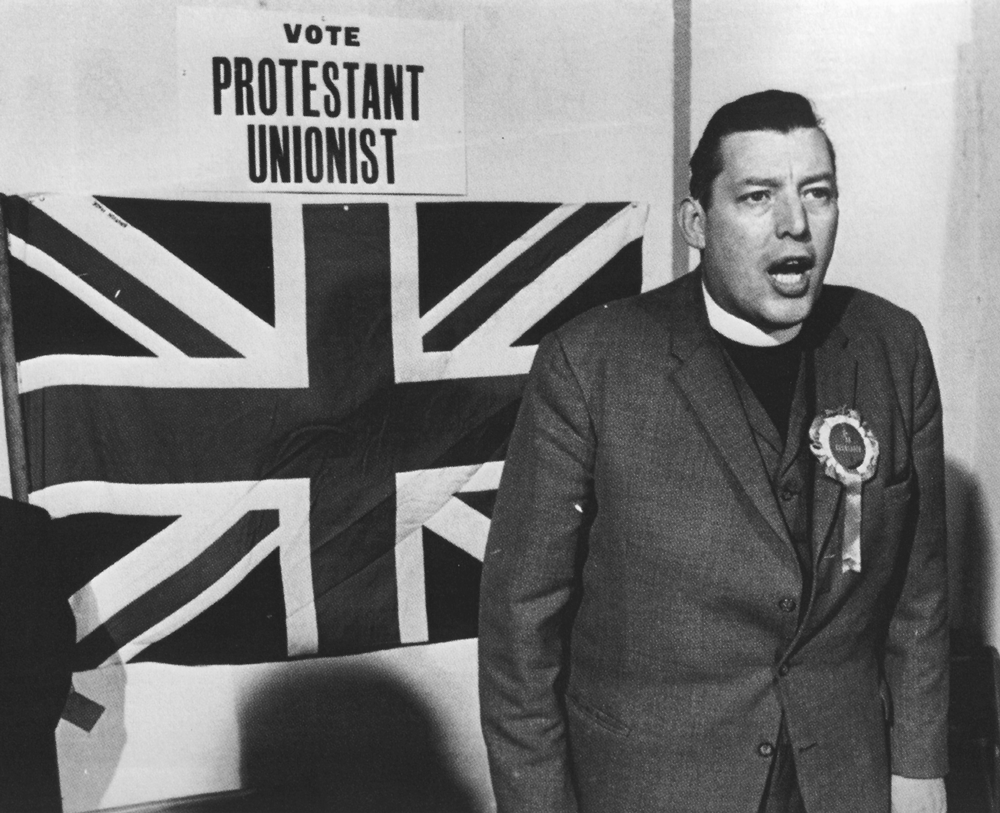 |
Boal attempted to move Paisley away from the Free Presbyterian-dominated Protestant Unionist Party and broaden its base. He failed in that task but arguably Peter Robinson completed the job.
|
The first extract deals with an incident most readers of this blog have probably never heard of. But for a few weeks in the Summer of 1957, the town of Fethard-on-Sea in County Wexford was on lips throughout Ireland:
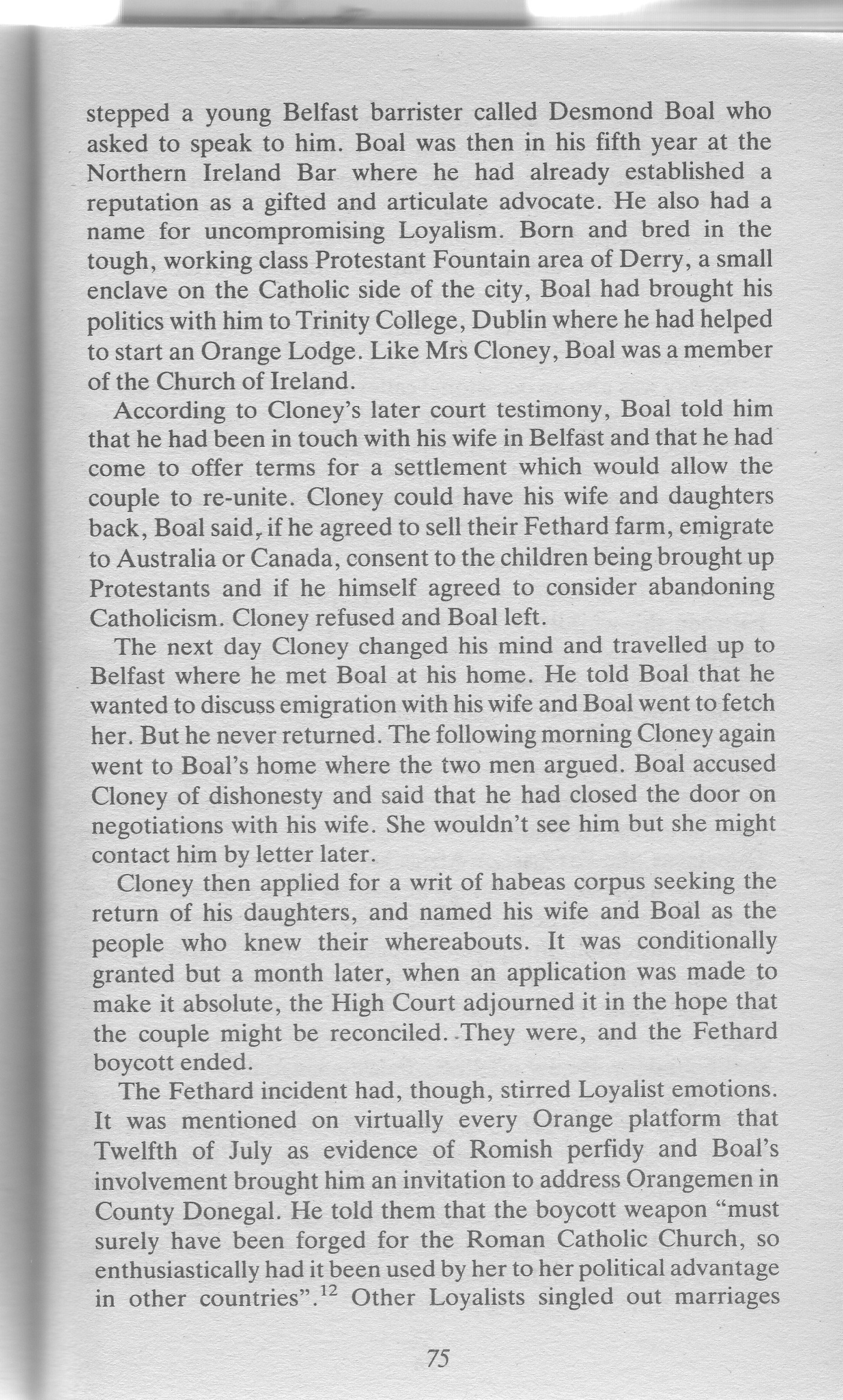 |
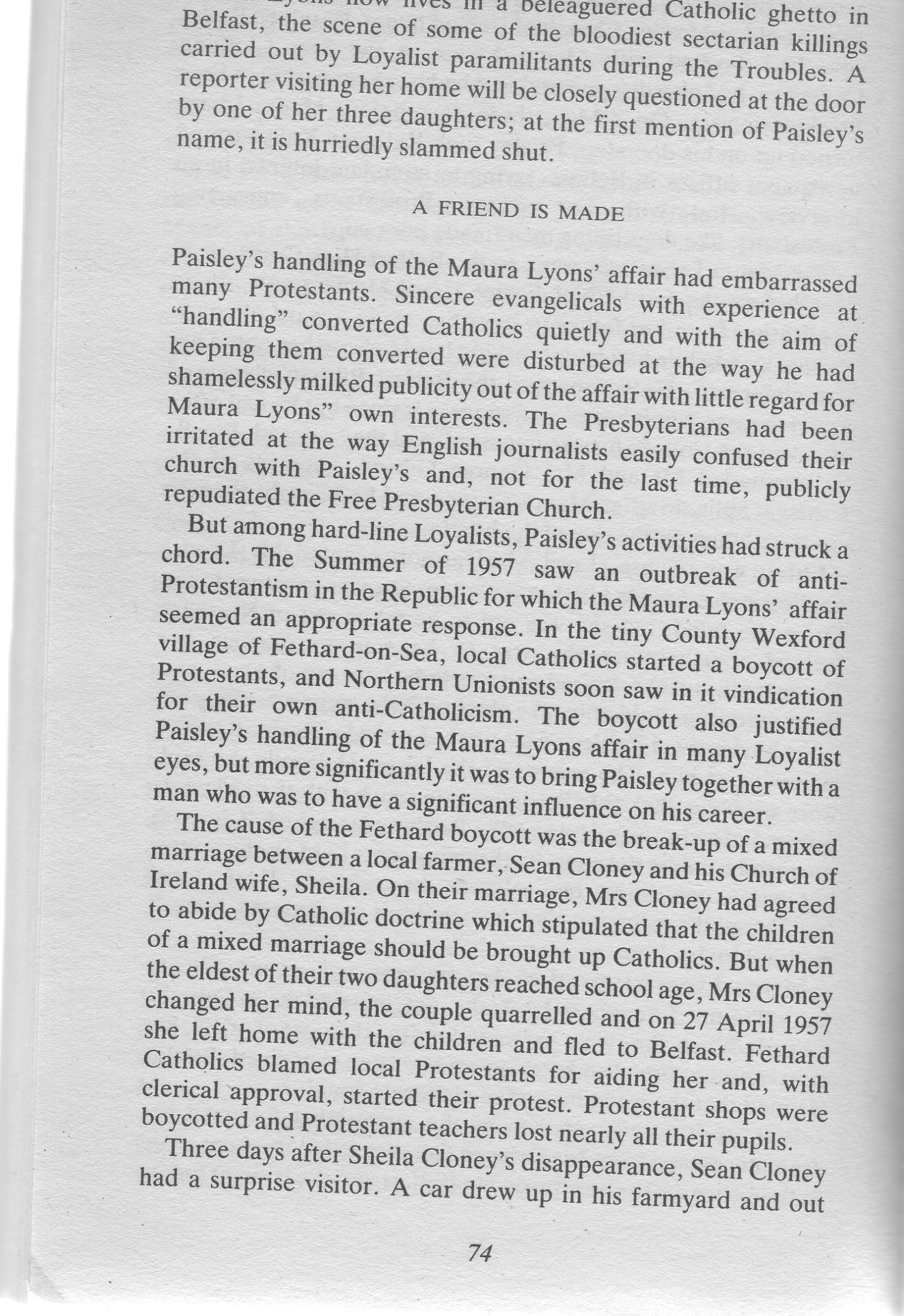 |
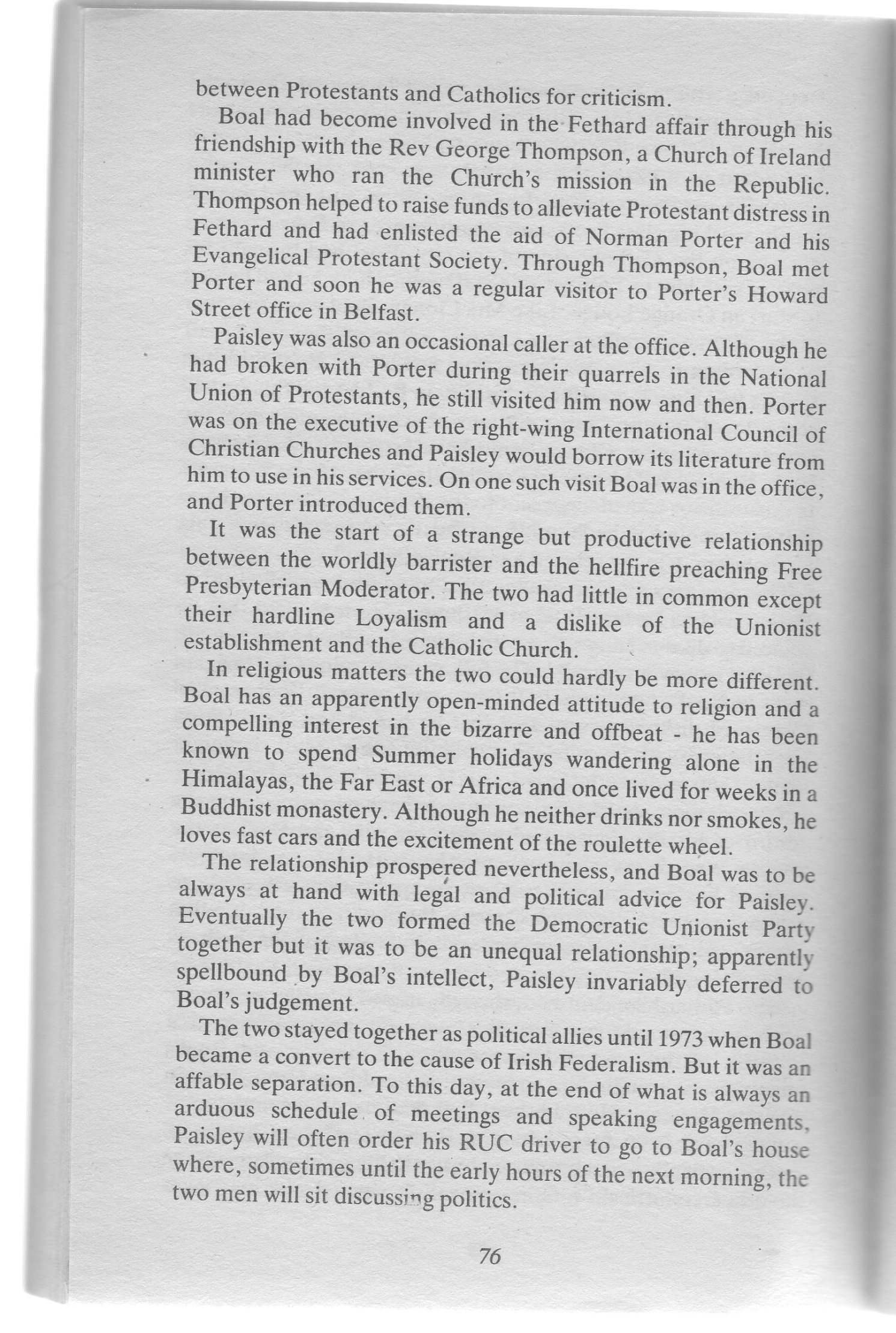 |
The second extract deals with the formation of the DUP, early signs of Paisley’s ambition to dominate anti-establishment Unionism, Boal’s failed efforts to make it a broad-based, social and economically radical Unionist alternative and his subsequent dalliances with politically dangerous ideas, dangerous to Paisley that is:
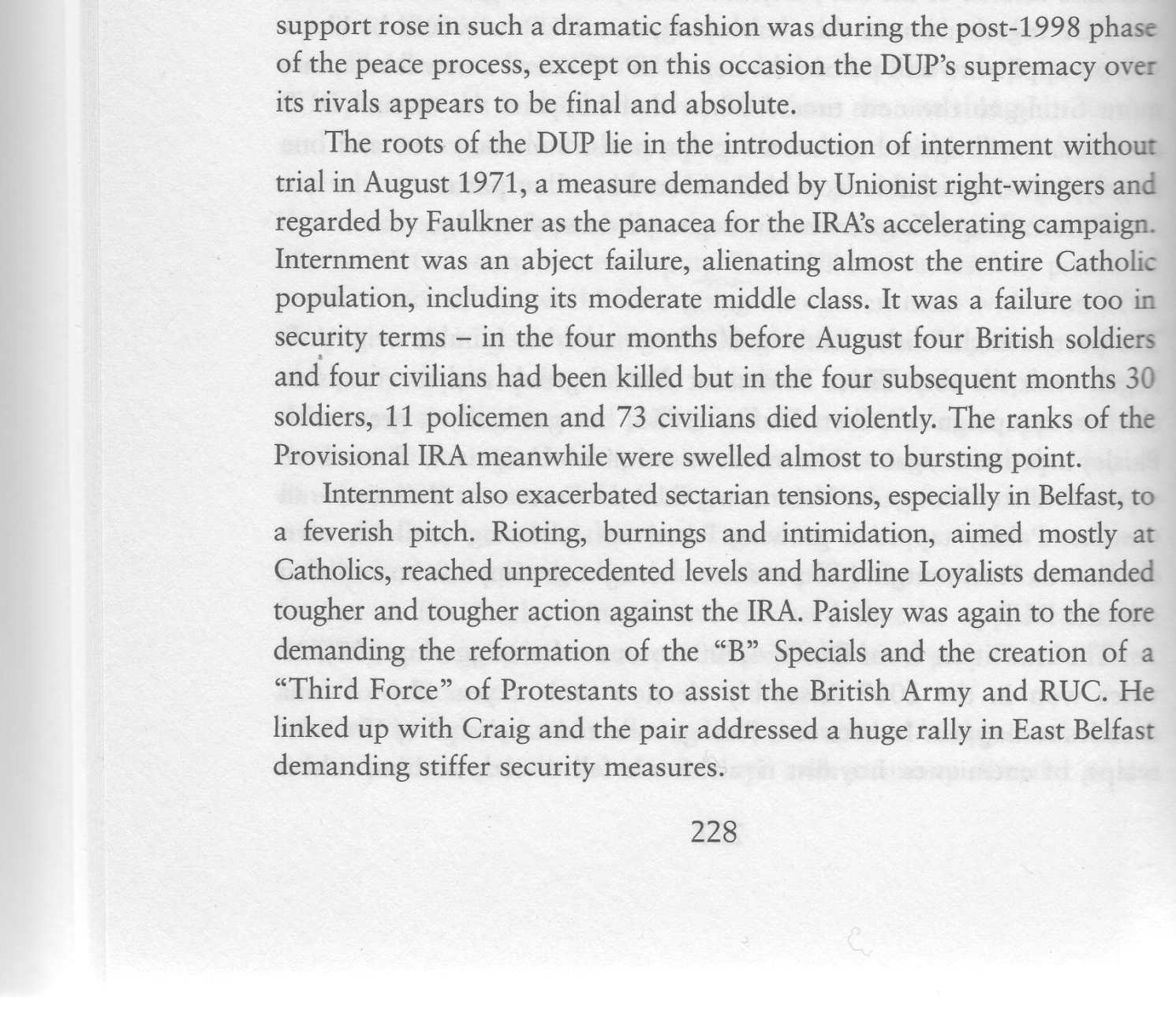 |
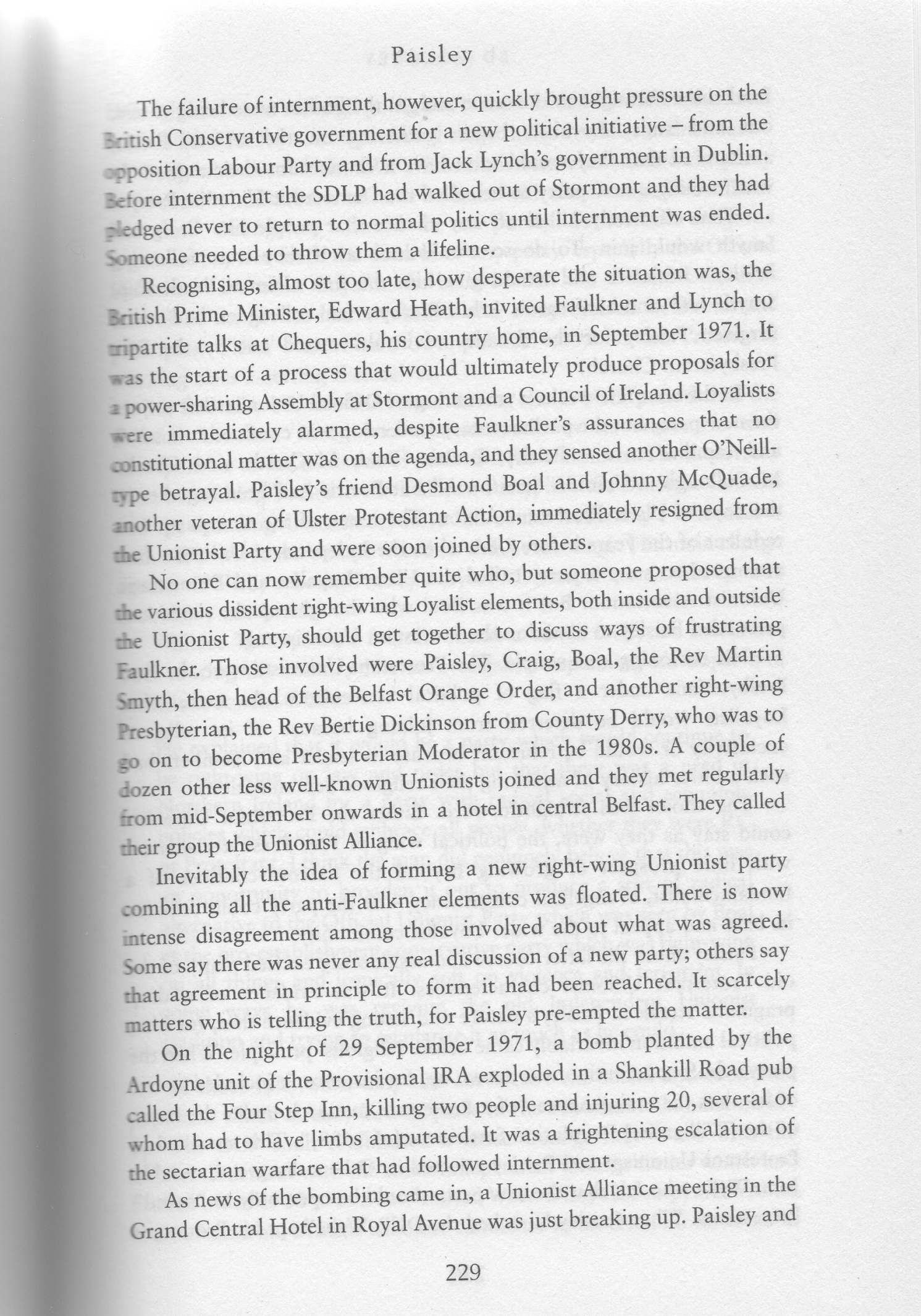 |
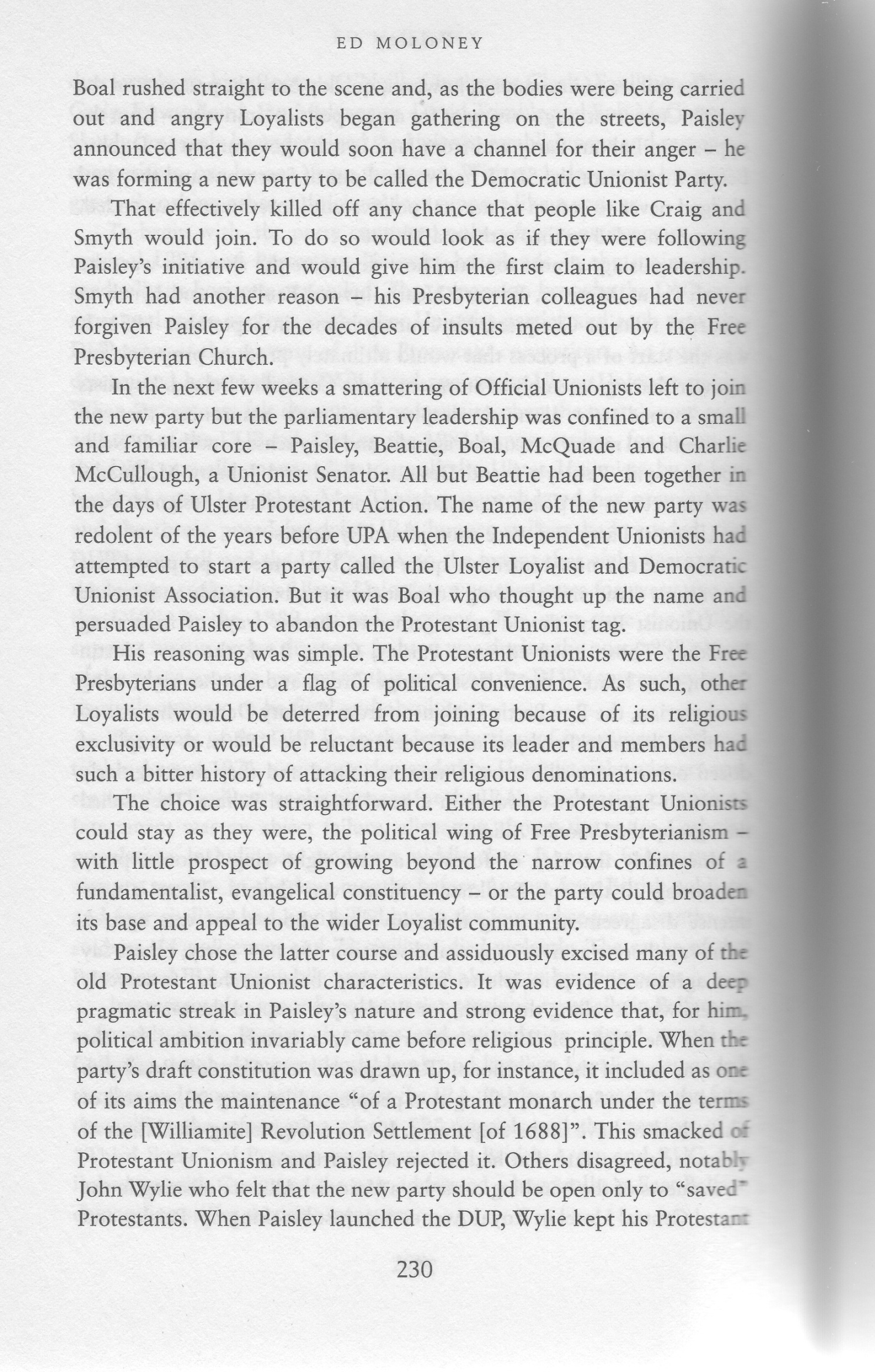 |
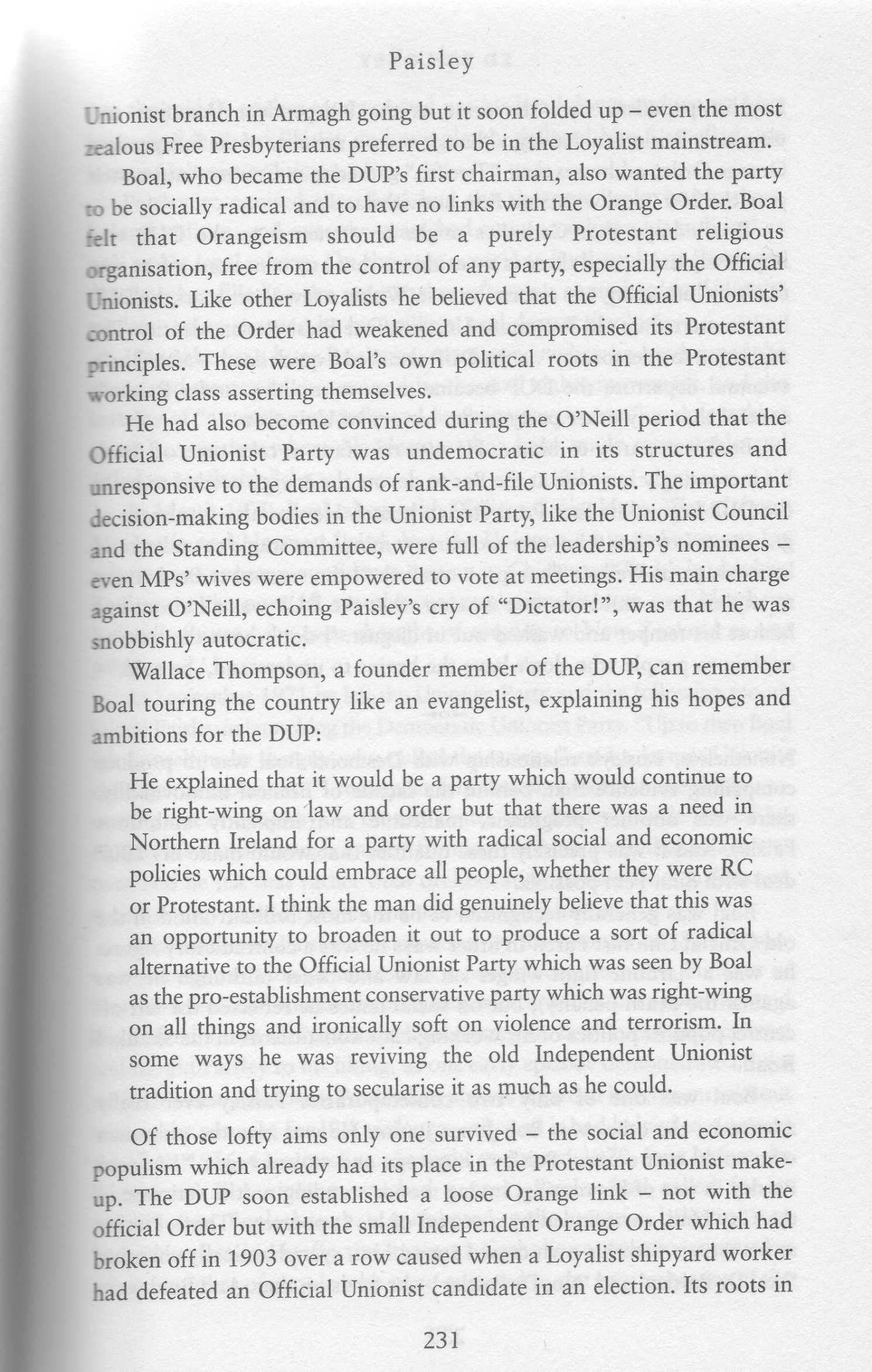 |
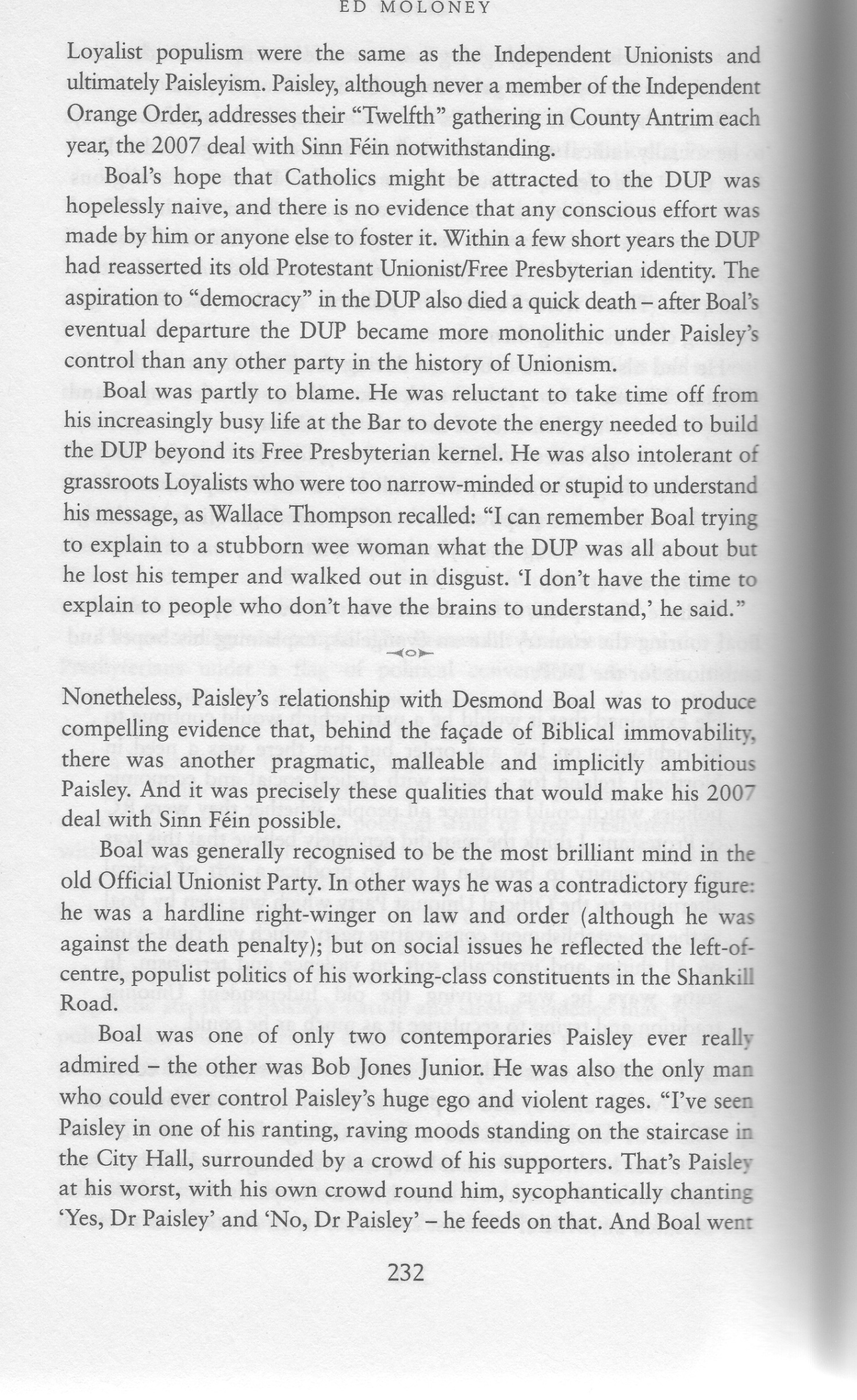 |
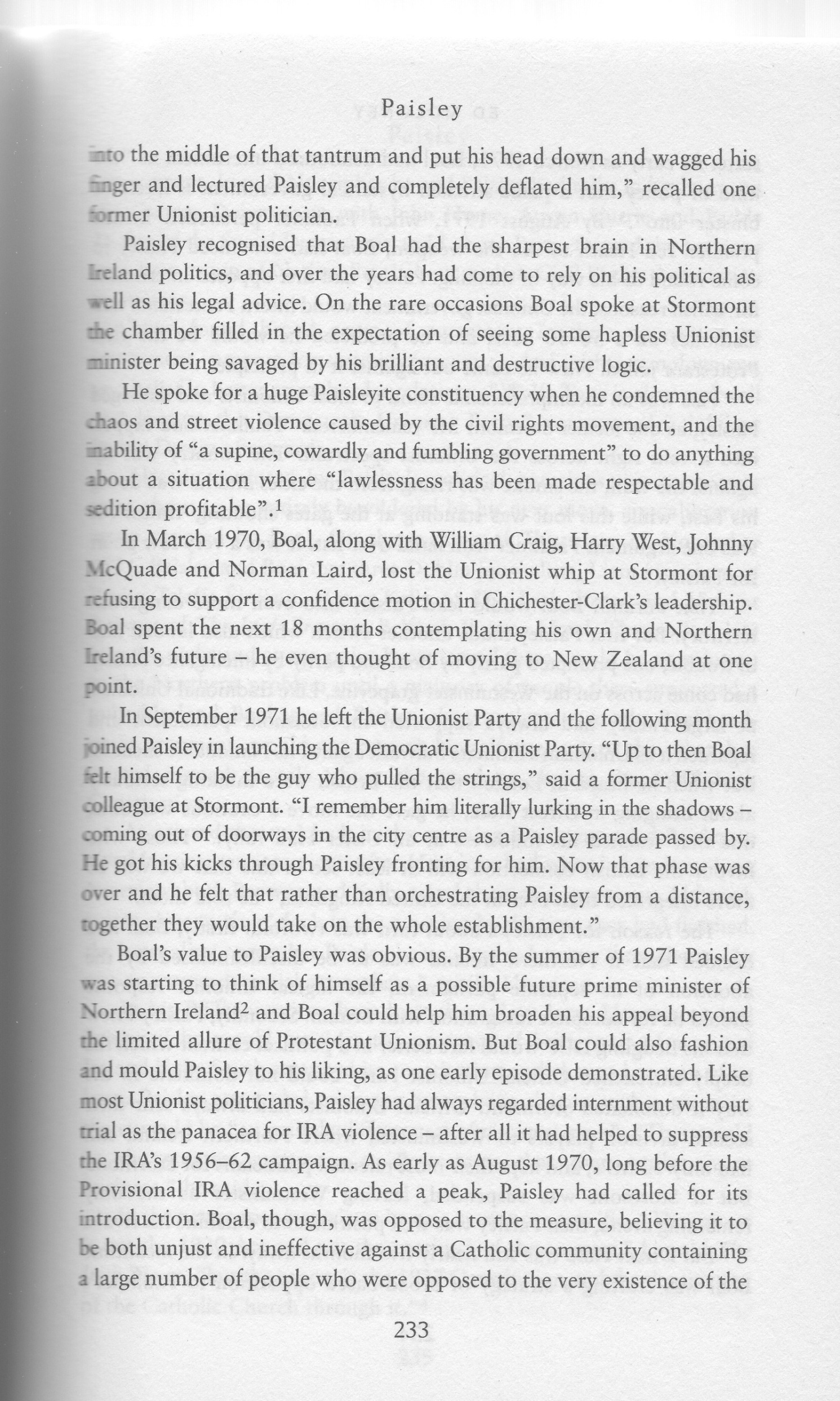 |
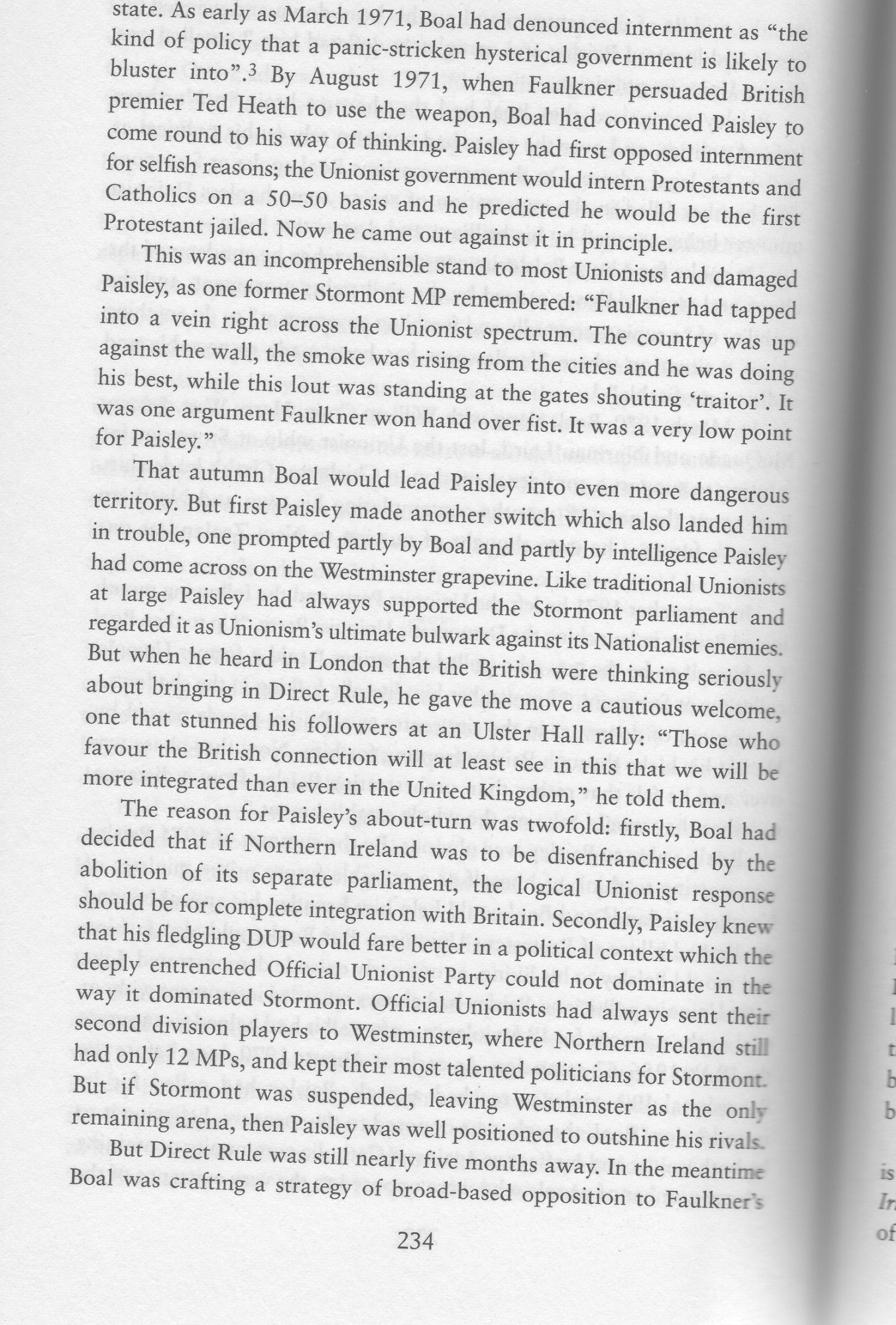 |
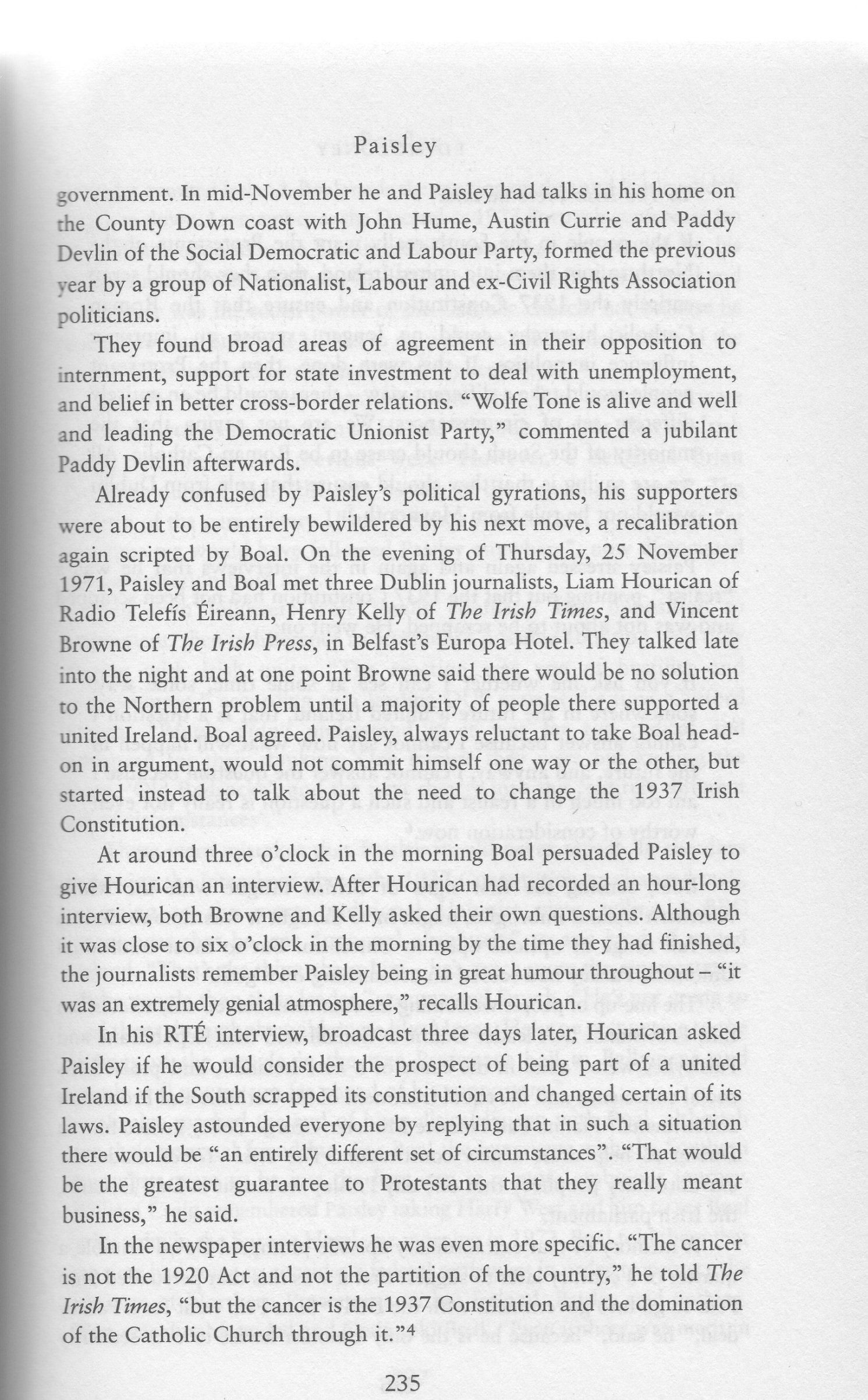 |
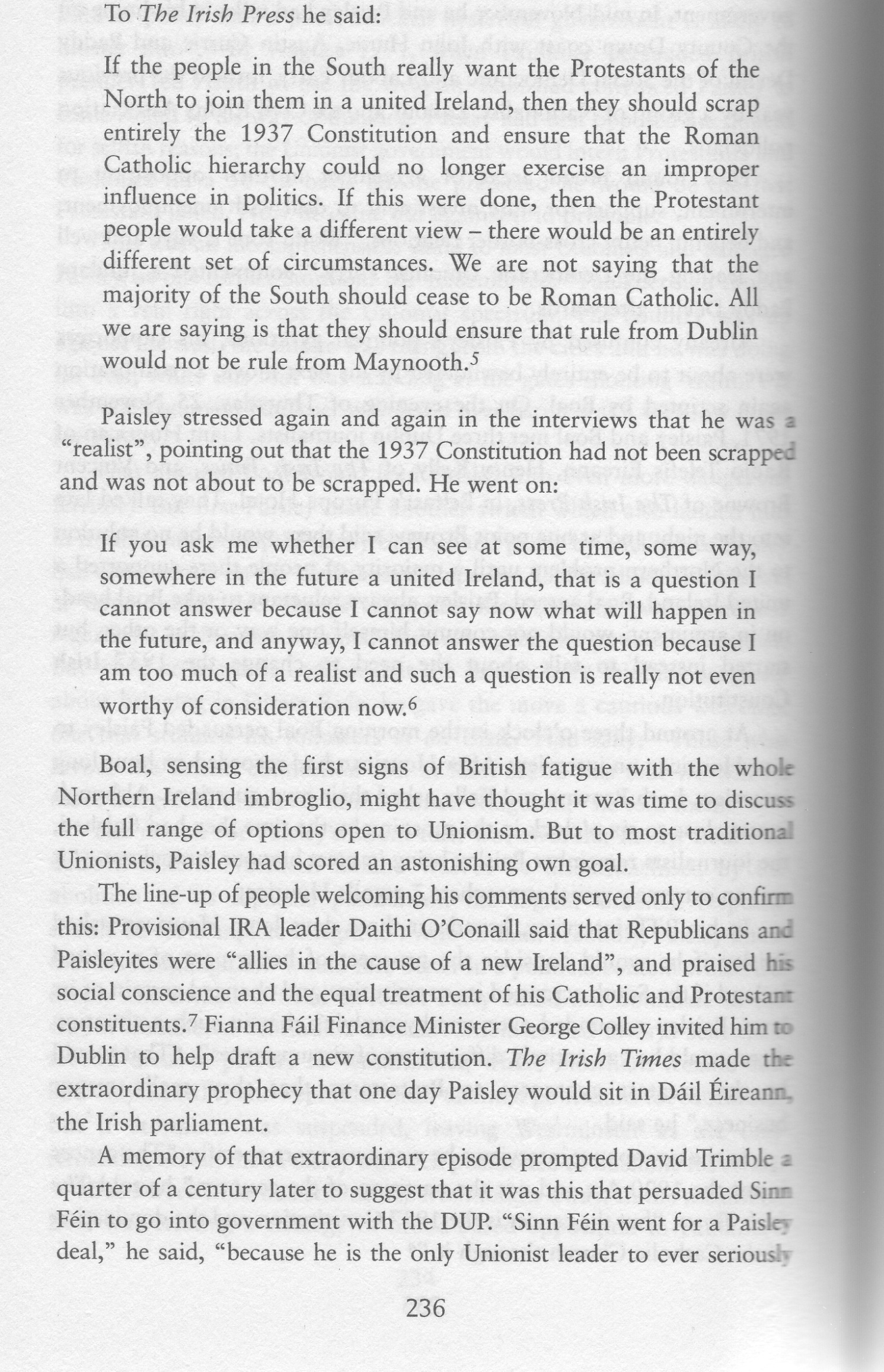 |
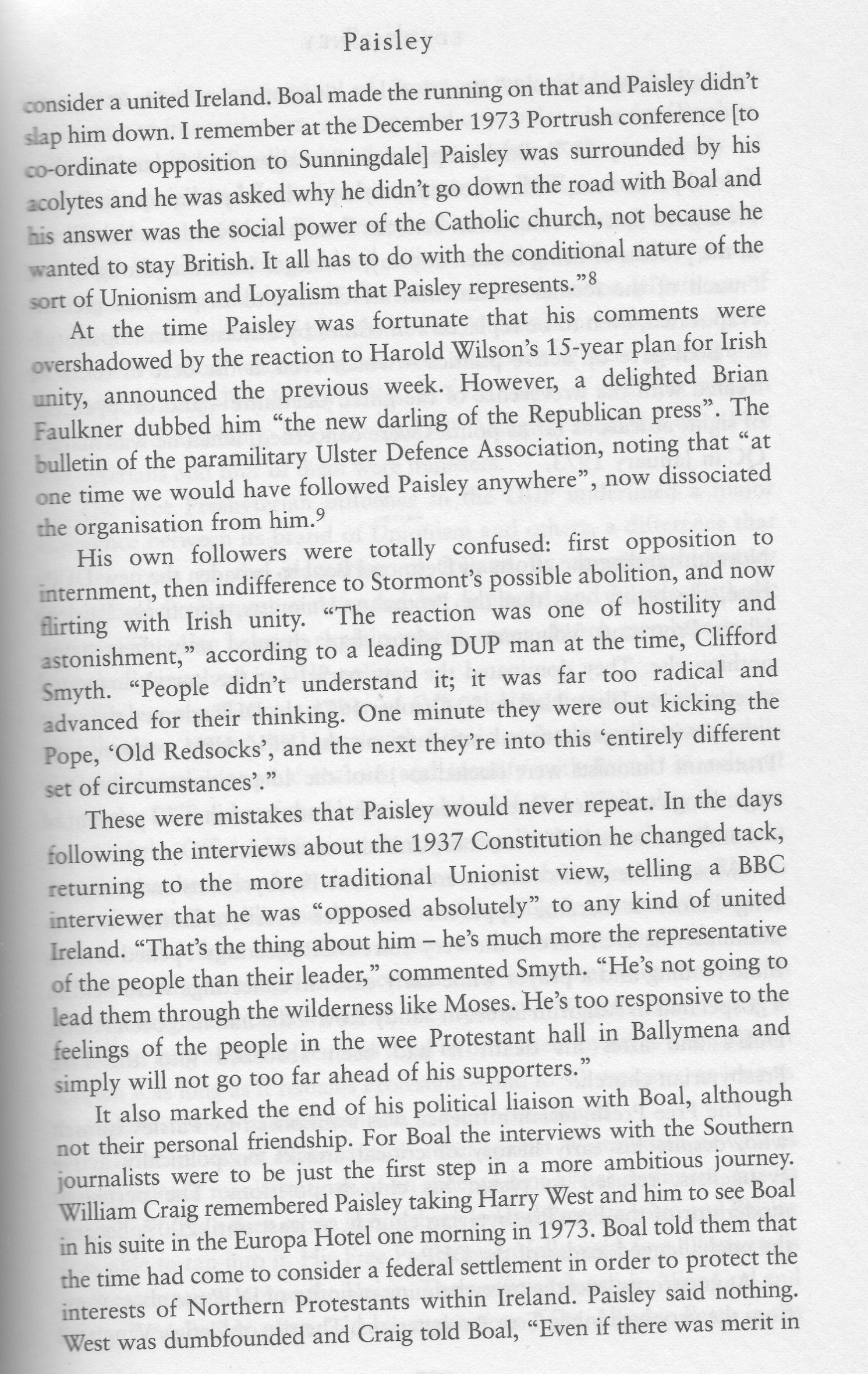 |
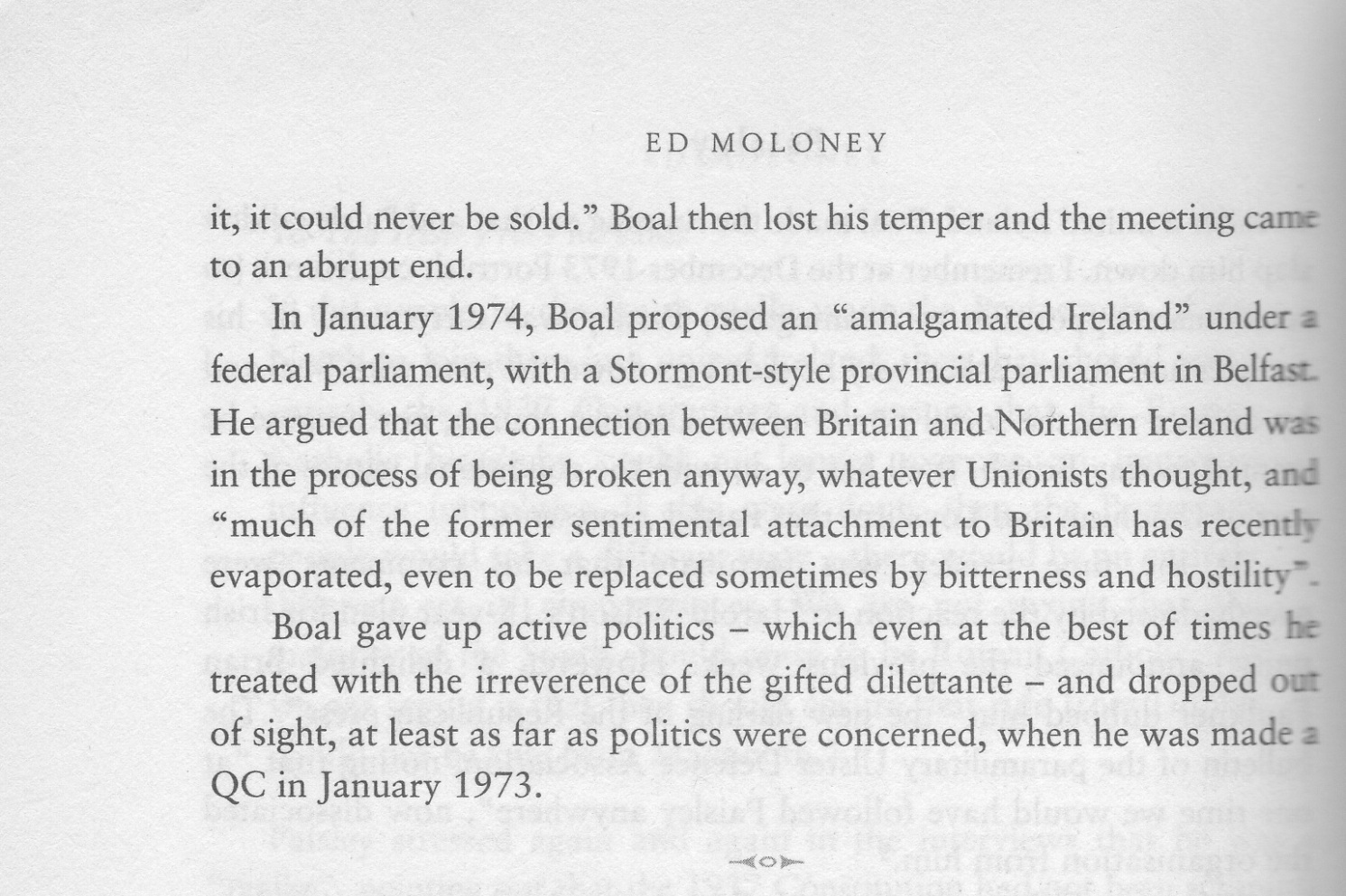 |
Finally, post-St Andrews, came the final break between the two men and with it the end of an extraordinary era in Irish political life:
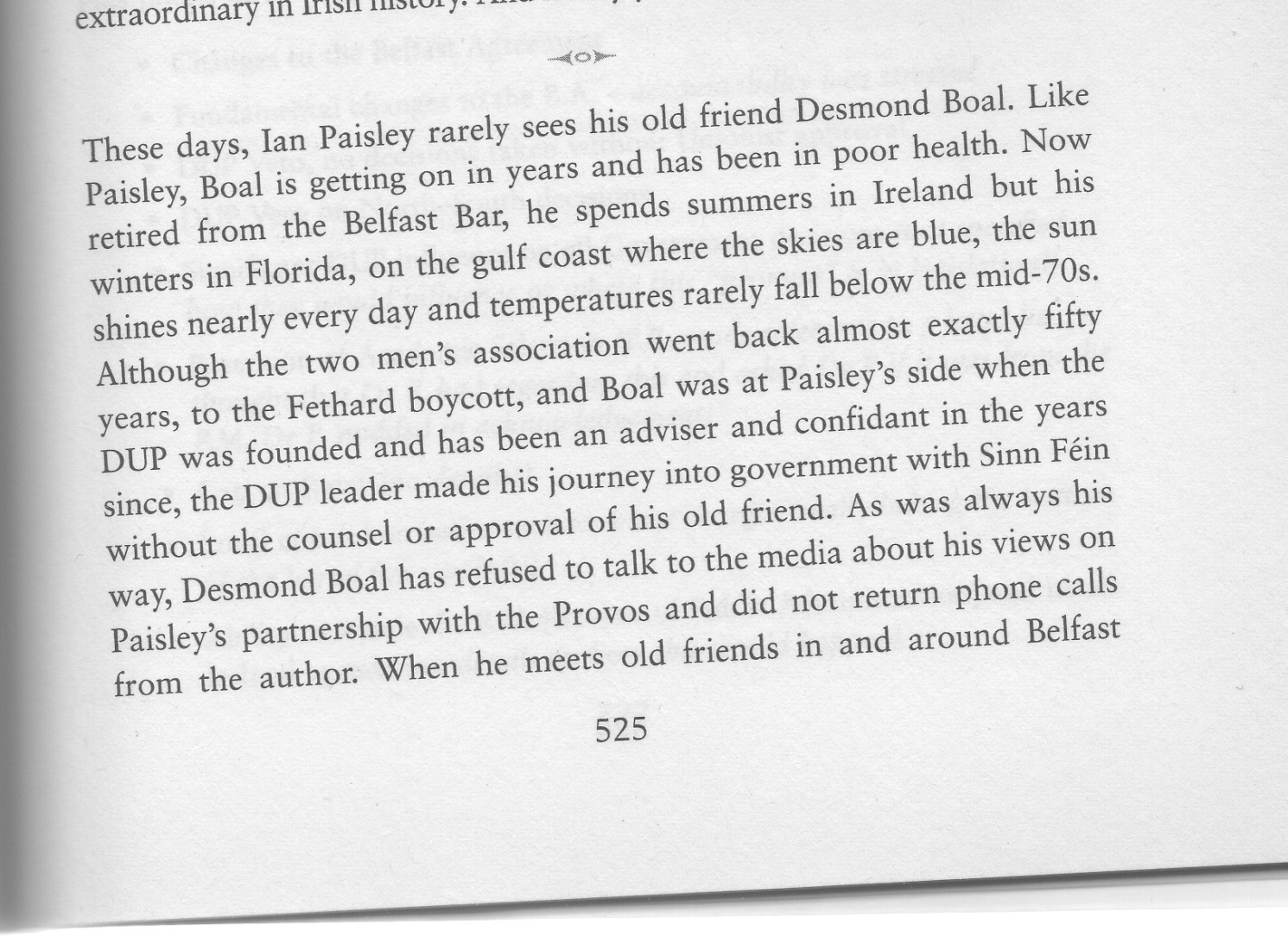 |
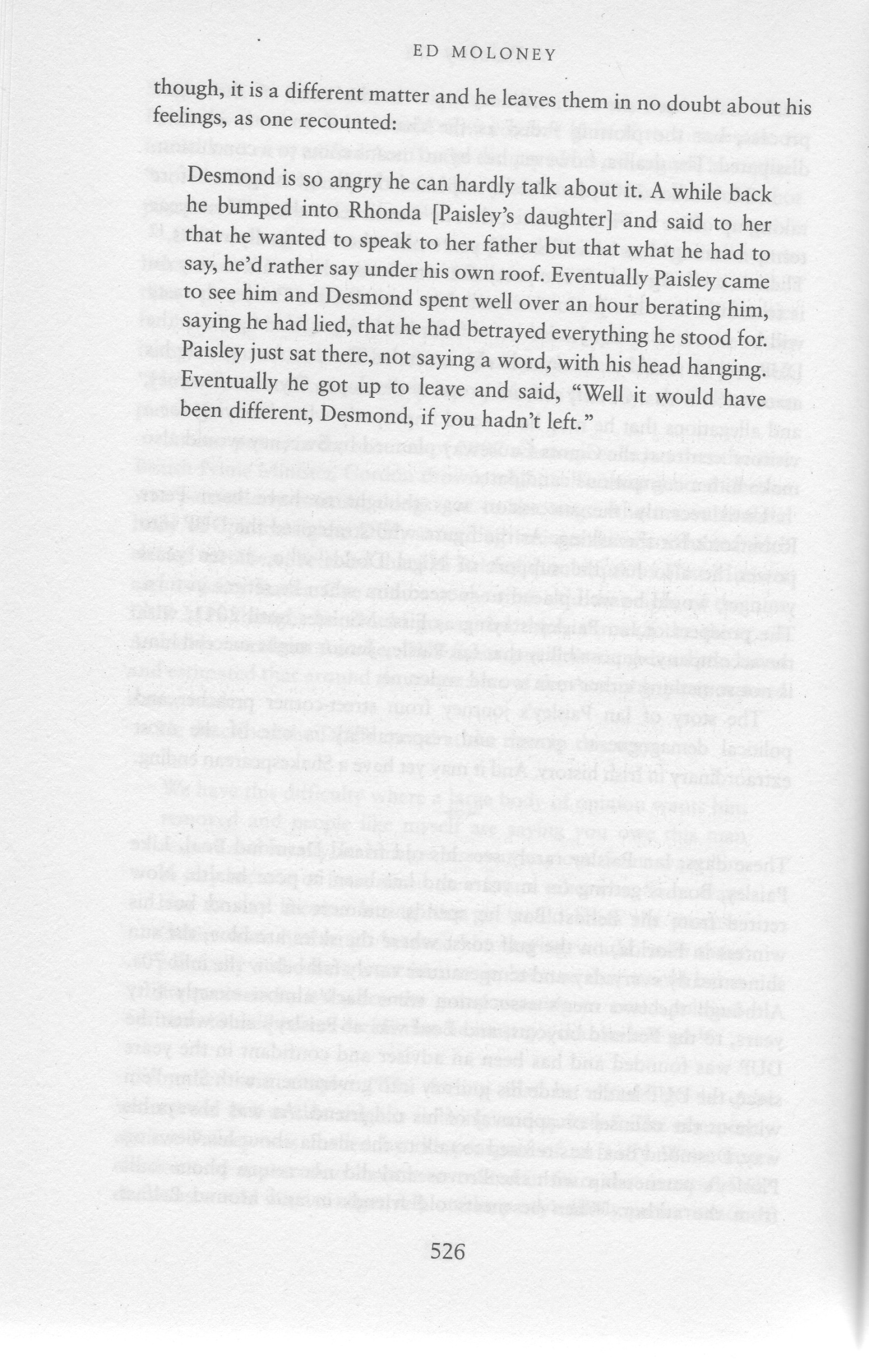 |



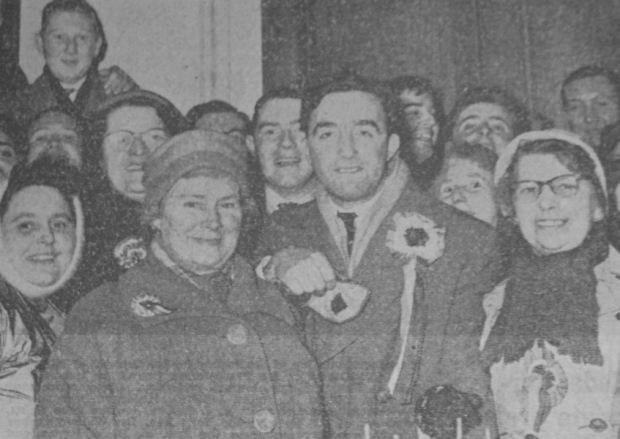



Ed's book has a lot of fascinating information on Paisley & Boal's thinking.
ReplyDeleteJust one addition - the Federal Ireland idea did not originate in 1973, but was the policy of the DUP at their foundation in 1971. I was at the Ulster Hall inaugural meeting, and the previous meeting that wound-up the Protestant Unionist Party.
In the Ulster Hall they made clear that the DUP were going to negotiate a Federal Ireland. A big surprise, to say the least, to many of us ordinary party workers! But most were swayed by Paisley and I believe would have went a long way on it. The wider Unionist people, however, were not going to be so swayed if they knew about it, so it was a kite quietly flown and hastily brought down at the first sign of astounded condemnation.
When I later challenged the faithful DUPers they would either deny it happened, or blame Boal for 'bamboozling the Doc.'
One of the 'What Ifs' of history!
Ed, a quote of Boal's, I learned while at QUB and working in loyalist east Belfast was
ReplyDelete'we shall be to the right on the constitutional question and to the left on social issues' made at the establishment of the largest unionist party in today's Ireland.
It is ironic that fourty four years later this party supports both Tory policy and Sinn Féin in government.